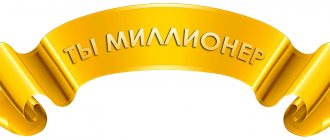Features of introverts
For introverts, finding a job can be a real challenge.
It is difficult for them to establish even superficial contacts. However, individuals with an introverted psychotype are responsible workers who are also capable of building a career. Such persons are characterized by punctuality and perfectionism. Introverts take their work seriously. They never make rash decisions. They have well-developed analytical skills, memory and thinking. Many of these people work slowly, but the results of their work pleasantly amaze their bosses and customers.
Introverts are not suitable for working in a team. Most of these individuals prefer to work from home.
Typical introverts are thoughtful, thorough people, often shy. Reflections, fantasies, imagination have special meaning for them. Only when alone with themselves do they feel calm in their souls. They always feel tension with others and carefully watch their words.
If an introvert is a woman, she can be easily identified in a group. Prefers not to talk about himself, his life. Gives the impression of an extremely reserved nature, a taciturn and even arrogant person. Feels shy, but can surprise with his thoughtful answers to complex questions and be an eloquent interlocutor.
Features of individuals with introversion:
- concentration on personal feelings, thoughts and experiences;
- perseverance, patience, predisposition to painstaking, possibly monotonous work;
- try to avoid crowded places, noisy companies, public speaking;
- strive to plan and think one step ahead, do not have a tendency to make sudden decisions;
- caution, honesty, politeness, as a barrier from the outside world.
Introversion is divided into groups. This division is conditional and includes several subspecies.
- Sensory introversion manifests itself in the character of a shy, withdrawn individual. Cannot be in the center of everyone's attention or a large crowd of people. He is suspicious of new acquaintances and avoids them. Does not tolerate criticism and is easily offended. He remembers the insult for a long time. Lives for today. Specific information and precise algorithms of action are preferable to theories.
- Logical-intuitive introversion predominates in the character of a lover of all kinds of theories and classifications. He carefully analyzes and systematizes everything. He always defends his opinion with reason. He can be called a cold, calculating person. An introvert with a rational preference is characterized by focus, determination, and outcome orientation. Rational introverts can often be found in leadership positions and among the military. The list of their advantages is quite impressive. You can often hear criticism of them for being unsociable and arrogant.
- Logical-sensory introversion encourages creativity and the desire to see beauty in everything. Such a person enjoys absorbing new things (study, self-education). It is easier to tolerate comments from friends in the form of advice, but not as criticism. Usually he doesn’t control those around him and doesn’t get his way at any cost. Most often this type of personality is found among girls.
- Ethical-intuitive introversion - a person mainly lives by feelings. He tries to change everyone, according to his worldview. He is prone to new ideas and fantasies. Getting carried away, he gets distracted without completing the task. Lacks discipline and endurance, is not organized.
Where to work for an introvert?
Introverts are now called people who are focused primarily on their inner world (therefore, after the release of Laney’s book “The Invincible Introvert,” the term “inners” is often used in relation to them). By nature, they are reluctant to quickly become close to strangers, strive to penetrate deeper than extroverts into the essence of phenomena, and prefer a narrow but exhaustive analysis to a broad but superficial perception.
Multitasking is “contraindicated” for all people, regardless of temperament, but introverts especially suffer from it. Therefore, in their activities they need to plan the sequence of events and their structural and hierarchical distribution.
Another characteristic feature of the “inner” (confirmed by the experiment mentioned above) is its specific reaction to the need to be resourceful in oral dialogue, especially under stressful conditions. In a conversation, introverted men and women pass everything through long-term memory and therefore are slower than extroverts in choosing words and are less able to formulate new (previously unrehearsed) thoughts.
As a result, “insiders” very rarely become effective negotiators in conditions of numerous rapid contacts with a variety of strangers (as required, for example, by working at exhibitions, presentations or in crowded retail outlets). But introverts compensate for this with the ability to conduct written negotiations with greater ease and accuracy, and to more clearly express their thoughts after deliberation.
If an introvert in his profession manages to create conditions that suit his temperament, he can express himself quite effectively in different work formats.
1. Entrepreneurial activity or hired labor?
At first glance, entrepreneurship looks preferable: it seems that on your own initiative you can refuse unpleasant contacts and build a work schedule individually, for yourself. In fact, the constant need to solve many production issues will require perhaps even greater communication skills than when working for hire.
The advantage is that the performance of unpleasant, but necessary functions can be delegated to your employees. At the same time, even in hired employment in companies of different profiles, even at the start of a career, you can find a place where contacts with random people will be kept to a minimum (for example, a window cleaner in a cleaning company, a mail carrier, an IT specialist, a merchandiser, etc.) .
2. Work in a team or independently?
It is difficult for an introvert to concentrate, existing in a “humming hive”, where he is subjected to a massive information attack from all sides and because of this he tends to withdraw into himself for a break. In addition, frequent and direct contact with others can become a problem not only for the introvert himself.
Closeness and lack of involvement in the general process is often interpreted by colleagues as an unwillingness to work together with everyone towards the result. Even the concentrated facial expression of “inners” (characteristic of introverts, immersed in their thoughts), is often perceived by others as a manifestation of criticism, irritation, or even malice.
However, this does not mean that teamwork is definitely not suitable. If an introvert joins a team with people he already knows (or, even better, like-minded people), then with a high probability he will be able to adapt to new conditions and find his place away from the hustle and bustle.
3. Remote work or personal presence?
In this opposition, an introvert will almost always choose remote work, since in this option several factors that are significant for him are realized at once. But, despite the fact that the development of Internet employment in the modern world significantly expands the list of professions for introverts, some types of activities do not allow this format.
Despite the common traits of temperament, introverts still differ from each other. Modern psychologists introduce an additional division of introversion into many subtypes (logical-sensory, ethical-intuitive, logical-intuitive, etc.). Therefore, “inners” choose professions for themselves from very diverse spheres of human activity.
An introvert will never get a job in sales. There it is necessary not only to establish contact with the client, but also to improvise, show emotions, and build a dialogue. This still does not fit in with the behavior of an introvert, so you need to forget about such work.
Working for a large corporation is also not an introvert's dream. Large corporations employ hundreds or even thousands of people. A person of this psychotype will not be able to exist comfortably in this “anthill”.
Teacher, tutor, psychologist - all bypassed. These professions require communication with unfamiliar people every day, which will be a lot of stress for an introvert.
https://www.youtube.com/watch?v=subscribe_widget
The strengths of an introvert are his creativity, ability to destroy stereotypes, and analyze. Introverts usually have excellent memories and are able to make informed decisions. Here are a few suitable professions:
- Writer. Here the love of creativity and unity will merge together. Writers can stay home around the clock, publishing their next “brainchild”. Communication with people is reduced to a minimum, and creativity is used to the fullest.
- Accountant. In the accountant's head there are only numbers, reconciliations, acts. They have no time to be distracted by others; they live in a world of numbers. In addition, outsourcing is now gaining popularity, then the work will be done at home, on your favorite couch. Moreover, the attentiveness of introverts will help them advance well in this profession; accountants must check their calculations more than once.
- Designer. Once again a great opportunity to work from home, and even show your creativity. Designers with a good portfolio get large and highly paid projects, so this is also a way to earn decent money.
- Copywriter. If an introvert has no problems with the Russian language and has the ability to write texts, this can be a good way to earn money from home. Copywriters can communicate with the customer exclusively via email or social networks, and still receive a tidy sum for their creation.
- Translator of foreign texts. This profession will require an introvert to have a high level of language knowledge, but at the same time free him from office slavery and communication with people. For the customer, the main thing is the result, and an introvert is able to give this result.
- Programmer. An excellent option for a melancholic introvert. Just him and a computer, nothing more is required for successful work. Please note that all programmers are uncommunicative in life, but they can lead an active Internet life (participate in discussions on forums, joke, become leaders in online games), this is explained by their temperament.
Which job is better not to choose for introverts?
Introverts are now called people who are focused primarily on their inner world (therefore, after the release of Laney’s book “The Invincible Introvert,” the term “inners” is often used in relation to them). By nature, they are reluctant to quickly become close to strangers, strive to penetrate deeper than extroverts into the essence of phenomena, and prefer a narrow but exhaustive analysis to a broad but superficial perception.
Multitasking is “contraindicated” for all people, regardless of temperament, but introverts especially suffer from it. Therefore, in their activities they need to plan the sequence of events and their structural and hierarchical distribution.
Another characteristic feature of the “inner” (confirmed by the experiment mentioned above) is its specific reaction to the need to be resourceful in oral dialogue, especially under stressful conditions. In a conversation, introverted men and women pass everything through long-term memory and therefore are slower than extroverts in choosing words and are less able to formulate new (previously unrehearsed) thoughts.
As a result, “insiders” very rarely become effective negotiators in conditions of numerous rapid contacts with a variety of strangers (as required, for example, by working at exhibitions, presentations or in crowded retail outlets). But introverts compensate for this with the ability to conduct written negotiations with greater ease and accuracy, and to more clearly express their thoughts after deliberation.
If an introvert in his profession manages to create conditions that suit his temperament, he can express himself quite effectively in different work formats.
1. Entrepreneurial activity or hired labor?
At first glance, entrepreneurship looks preferable: it seems that on your own initiative you can refuse unpleasant contacts and build a work schedule individually, for yourself. In fact, the constant need to solve many production issues will require perhaps even greater communication skills than when working for hire.
The advantage is that the performance of unpleasant, but necessary functions can be delegated to your employees. At the same time, even in hired employment in companies of different profiles, even at the start of a career, you can find a place where contacts with random people will be kept to a minimum (for example, a window cleaner in a cleaning company, a mail carrier, an IT specialist, a merchandiser, etc.) .
2. Work in a team or independently?
It is difficult for an introvert to concentrate, existing in a “humming hive”, where he is subjected to a massive information attack from all sides and because of this he tends to withdraw into himself for a break. In addition, frequent and direct contact with others can become a problem not only for the introvert himself.
Closeness and lack of involvement in the general process is often interpreted by colleagues as an unwillingness to work together with everyone towards the result. Even the concentrated facial expression of “inners” (characteristic of introverts, immersed in their thoughts), is often perceived by others as a manifestation of criticism, irritation, or even malice.
However, this does not mean that teamwork is definitely not suitable. If an introvert joins a team with people he already knows (or, even better, like-minded people), then with a high probability he will be able to adapt to new conditions and find his place away from the hustle and bustle.
3. Remote work or personal presence?
In this opposition, an introvert will almost always choose remote work, since in this option several factors that are significant for him are realized at once. But, despite the fact that the development of Internet employment in the modern world significantly expands the list of professions for introverts, some types of activities do not allow this format.
Despite the common traits of temperament, introverts still differ from each other. Modern psychologists introduce an additional division of introversion into many subtypes (logical-sensory, ethical-intuitive, logical-intuitive, etc.). Therefore, “inners” choose professions for themselves from very diverse spheres of human activity.
You should not choose professions that involve frequent contact with people and the likelihood of stressful situations.
- Social workers simply need qualities such as a stable psyche, the ability to communicate easily, and resistance to stress.
- Trade and service workers require strong nerves, eloquence, and psychological skills in working with clients. It is unlikely that an introvert will feel comfortable in an atmosphere of constant movement, crowds, and noise.
- All public professions: stage, show business, performances, interviews, photo shoots are probably the most inappropriate activities for an introvert.
- Various types of consultants. Inevitable conflicts will be a daily challenge for an introvert.
- Work in medicine. Mandatory interaction with patients and their relatives will become a great moral burden for a person who prefers loneliness, and it is unlikely to bring relief to the sick.
- Pedagogy. There is an opinion that it is impossible for introverts to work as a teacher or preschool teacher. A lesson with such a teacher turns into a mini-lecture with abstracts. But it is always possible to turn your character traits into advantages.
Interviewing is a real challenge for introverts. Perhaps recommendations for a successful interview will increase your chances of getting your dream job.
- People prone to introversion do not have excess energy; communicating with strangers tires them. Excitement and doubt in one’s abilities take their toll. This must be taken into account when planning the day on which the interview is scheduled. To be in shape, you need to try to spend the morning in a calm environment. If possible, be alone, take a walk, get some fresh air. Concentrate on the important thing, putting other things aside for later. You can arrive to the meeting in advance so as not to be afraid of being late.
- During the meeting, you need to monitor your condition. Try to relax, smile at your interlocutor, and turn on the positive. You can use your resume to stay on top of the conversation. Do not take long pauses when choosing words. When talking, try to look the recruit in the eye.
- You need to tune in to small talk. The recruit will deliberately ask general questions in order to get a closer look at the applicant. Assess his behavior and friendliness. It is advisable to keep the conversation going, without getting irritated or withdrawn.
- When talking about personal qualities, you can mention character traits, emphasizing the advantages. For example: “As an introvert, I am always in control of my emotions, and it is difficult for me to get angry.”
- Conduct a rehearsal for the upcoming conversation. If you feel stressed during an interview, it’s worth practicing. Try out loud, in detail, answer typical questions for the applicant (reason for changing jobs, professional skills, reasons for leaving the previous job). You can find information about the company, consider in detail each of the requirements for the applicant, and arguments.
In the next video you will find the TOP 7 best activities for an introvert.
To understand which job is more suitable for introverts, you need to take into account the main qualities of their personality:
- focus on your inner state;
- difficulty establishing interpersonal connections;
- tendency to be alone and avoid large crowds of people;
- external equanimity, lack of emotion, taciturnity;
- fear of spontaneous actions.
For people with this type of character, activities that are calm and stable, without continuous communication with poorly acquainted people, and not associated with frequent moves and sudden changes, are suitable. Introversion has absolutely no effect on an individual's mental abilities. If he does not actively try to master professions for extroverts, then he is quite capable of achieving high professional results.
What kind of job is suitable for an introvert?
At first glance, an introvert is a slow, uncommunicative and passive person. Unlike an extrovert, he cannot make a favorable impression on an employer, especially at the first meeting. Because of this, recruiters give preference to brighter and more active applicants. But introverts have valuable work skills:
- methodical and consistent. These characteristics are important when working with large amounts of information or monotonous repetitive actions;
- focus and involvement;
- lack of response to external stimuli. An introvert will not constantly stop to chat with co-workers;
- the ability to accurately follow job instructions and the ability to work according to regulations.
So, introverts are irreplaceable when it comes to professions that require accuracy, consistency, and scrupulousness (laboratory assistant, experimenter, programmer). An extrovert, on the contrary, will not be able to perform routine work efficiently: he will quickly get bored and begin to get distracted.
Introverts are successful in professions that involve caring for animals and plants. This is not necessarily a banal livestock breeder or plant breeder: introverts make excellent breeders, biologists and research zoologists.
Introverts are great at creative and exploratory tasks. Many writers, famous scientists, architects and IT specialists have admitted that they quickly get tired of communicating with people and prefer to work alone.
Introverts, as a rule, do not like to work in a team, in close interaction with colleagues and co-workers. And constant prodding and reminders about deadlines can throw them into a stupor. The ideal option for such an employee is an individual task or a separate area of work for which he is independently responsible.
Equally important is a favorable psychological atmosphere in the team and suitable working conditions. For maximum self-realization, an introvert must take into account the characteristics of his personality type and work in a calm environment, in a separate room or with 2-3 colleagues. A good option is working from home by agreement with management or freelancing.
Craft activities
Introverts love privacy. Alone, they are more comfortable working and creating something new. For such people there is a small list of suitable craft professions:
- Jeweler. Creates and repairs jewelry. Jewelers work with metals and precious or semi-precious stones. The specifics of labor often depend on the type of products and methods of processing. Jewelers work in workshops where they have to deal with special equipment. This profession is one of the most prestigious for introverts, as it is in significant demand.
- Blacksmith. In this area, people make fences, gates and various decorative elements for landscaping. Their work involves the use of metal. They usually specialize in forging, casting and stamping. The profession of a blacksmith is always relevant, but there are many requirements for candidates: a person must be strong, physically resilient, and creative. Men often choose this type of work.
- A carpenter. He works with wood, from which he creates building materials and structures for various purposes. Carpenters are also involved in building houses, fencing, and installing wood windows and flooring.
- Carpenter. He also works with wood, but creates more complex products. These can be decorative elements with carvings, arches, pieces of furniture. Carpenters are well versed in the types and characteristics of materials. Often, some workers open their own workshops. It should be noted that the work involves wood chips and dangerous tools. Woodworkers should be careful to avoid injury.
- Seamstress. Sews various outfits and products from fabrics and other materials. This is an ideal job for an introverted woman. Seamstresses can work in factories, fashion houses or ateliers. Some people prefer to sew clothes at home. Some are creative and also engage in embroidery, lace weaving and creating decorative details for different outfits. Professional workers can develop their own product designs. The profession is always relevant, but it is not always possible to find a vacancy with a high salary.
Finding a job during a crisis is difficult for everyone - there are few vacancies, competition has increased, and employers are trying to select the best. Finding a decent job requires a lot of effort. But there are people who face special difficulties along this path. These are introverts. The good news is that these difficulties are surmountable: some traits can be adjusted, and some can be turned into an advantage.
Brief excursion
Introversion/extraversion is one of Carl Jung's four dichotomous traits used to define personality types. The main features of an introvert: they draw energy from within themselves, are prone to reflection, calmly do without feedback from others, practically do not need external recognition, prefer a narrow circle of communication (more details in additional material). There are many introverts; according to some data, more than extroverts. For example, a study that analyzed the results of the Myers-Briggs test (see additional material) showed that among US residents there are more introverts than extroverts: 50.8% to 49.3%, and men (54.1% ) more than women (47.5%). The composition is not bad and of high quality - Warren Buffett, Bill Gates and Steven Spielberg consider themselves introverts.
The main obstacle
If you look at the job search process, keeping in mind that there are different personality types, it may seem like it was invented by extroverts and their supporters. Active networking, which involves, among other things, communication with strangers and unfamiliar people, coupled with interviews, the success of which largely depends on the ability to present oneself - all this can be a problem for many introverts.
“An introvert is a person who is focused on his own inner world, the level of introversion varies, but, as a rule, it is difficult for such people to establish superficial contacts; they take every fact of communication deeply and seriously,” says Anna Mukhina, head of the psychological counseling department for career issues of the Center for Development and Testing “Humanitarian Technologies”. “If we talk about finding a job, then the difficulties are most associated with this trait.”
But introverts have at least one more quality that can be a hindrance when looking for a job. According to neuroscientists, the brains of introverts and extroverts process information differently. Introverts think before they speak, while extroverts speak and think at the same time. The interviewer may not like “delayed” answers at the interview, because he does not know what caused this.
Ways to overcome
So, there are difficulties, but there are also proven ways to overcome them. So, an introvert’s best friend is the Internet. “Social media, blogs, and forums are designed for introverts because they give them the opportunity to think and choose the right words before they speak,” says Wendy Gelberg, a career coach who has worked with introverts since 1979. Online networking gives you the opportunity to play to the strengths of introverts, allowing you to connect with more people without the tension that comes with face-to-face interactions.
Anna Mukhina advises making the most of remote contact methods, including with a potential employer: “If it is difficult for you to be active in direct communication, then you need to use all the possibilities of the Internet: send your resume, inquire about its fate by e-mail, fill out forms on websites companies..."
However, it is still not possible to completely avoid personal contacts. Interviews cannot be avoided. And if improvisation can help an extrovert at an interview, then the main weapon of an introvert is careful preparation. “All personal contacts that are planned in advance, from telephone conversations to interviews, need to be thought through and prepared,” says Anna Mukhina.
“Everyone should prepare for an interview by learning as much as possible about a potential employer, but extroverts usually don’t do this,” says Wendy Gelberg. — Introverts can enjoy the process itself: studying the company’s website, searching for information in the press, and much more. Your awareness will show the employer that you are interested in the company and not just desperate for a job. This can often give you a real advantage.”
But this is just the beginning. Keeping in mind what neuroscientists have discovered, you need to think ahead about what questions you might be asked and prepare your answers. Some questions can be “guessed” by carefully reading the job description, and some can be provoked by providing incomplete information here and there in the resume. “This is such a hook for the interviewer,” says Anna Mukhina. “Just don’t get carried away.” And when answering unexpected or tricky questions, you can ask for a minute to think. “Try to respond as quickly as possible,” advises Wendy Gelberg. “But remember that an interview is a two-way street, and a company that only values quick answers may not be the right fit for you.”
One more thing. At an interview, the request to tell about yourself may not come directly, but a story prepared in advance will, one way or another, come in handy. Experts advise not only preparing and rehearsing a self-presentation, but also playing it in public, inviting family or friends as spectators if it is not possible to contact a specialist. “When contact is difficult, it is difficult for a person to control himself, he begins to get nervous, his posture and facial expressions betray excitement and uncertainty. An outside perspective will help identify and correct shortcomings,” says Anna Mukhina.
Advice from seasoned introverts
Based on expert advice, each of us uses our own job search tactics, but someone else's experience never hurts. Here are some tips that introverts give to their “colleagues in misfortune”:
- practice more often, and for this, go for interviews at companies where you are not going to work;
— ask more questions during the interview. On the one hand, the right questions show your interest, and on the other hand, they give you the opportunity to talk less yourself. But don’t get carried away - the interlocutor may also turn out to be an introvert;
- prepare, anticipate questions, practice smiling and maintaining eye contact, and if you are asked an unexpected question, clarify it. This will give you the opportunity to think, just formulate it in such a way that the interlocutor actually adds something valuable.
And one last thing. No matter how active you are in your job search, rest. Rest alone is a vital necessity and a sacred right of an introvert. Even those who have learned to successfully camouflage need it. “Most of the people I talk to don’t believe that I’m truly an introvert,” writes a “fifty-year-old technically minded introvert” on one forum. “They don’t know how long I need to rest after communication.” But this is an inevitable price."
from Fortune Magazine were used in preparing this article.
List of suitable professions
Understanding your strengths and weaknesses will give you a chance not to make a mistake in choosing your favorite activity. Introverts are ideally suited for professions that do not require constant communication or spontaneous decisions. They find it difficult to be on a team. A necessary condition is a calm environment that will allow maximum concentration.
- Most suitable for working with numbers, processing and analyzing data, systematizing them, building algorithms and tables. For example, work in the financial sector, accounting, banking. Their diligence and attentiveness will come in handy here.
- Opportunity to work in the IT industry: programmer, system administrator, manager, designer or website administrator. Work based on numbers and codes. Remote work, limiting personal meetings, communicating with clients via email.
- An introvert can choose a literary direction: writer, journalist, copywriter, text translation. The ability to competently express one’s thoughts, rich imagination, tendency to think, observation. A great way to express yourself. For starters, you can work as a librarian.
- Work as a designer. For example, individual landscape projects, clothing, jewelry, website designer.
- Top professions in science: researcher, breeder, laboratory assistant. A special predisposition, ability, and experience are required.
- Creative professions without public speaking are ideal for humanitarians. Expectations: immersion in one’s own reality, solitude. Observation, self-discipline, hard work and, of course, talent are required. For example, an artist, with his keen vision of the world, developed imagination, and desire for solitude.
- An introvert may well be satisfied with various technical specialties: technician, mechanic, engineer. Special specialized education is required. Alternatively, take a driving course. At the moment, these are the most popular professions among men. You can often see older girls and women driving, for example, taxis. Attentiveness, concentration, accuracy, clear rules and tasks. Irregular working hours.
- Choose activities that focus on the natural world. Veterinarian, dog handler, trainer, plant breeder, beekeeper, florist and many others. Perseverance, compassion, sensitivity to nature. Less stressful, solitary work.
- Handicrafts, various crafts, cooking. Now there is a real opportunity to sell your work on various sites on the Internet. City fairs.
At present, when education is equally accessible to both women and men, it is difficult to make a clear division of professions into male and female.
For men
What job is suitable for a male introvert:
- SMM manager or other specialties related to communication via email or social networks.
- Working with various data banks (requires perseverance, concentration and minimizes communication with people).
- Analytical activities are in demand in the fields of marketing, sales, logistics, and financial activities.
- Economist accountant.
- Train driver, driver and other working professions.
Carpenter
- A programmer or IT specialist is a decent job for a misanthrope.
- Written translation specialist.
- The profession of a copywriter or writer is acceptable for people in the humanities.
- Engineer, technologist, mechanic, chemical technologist and other technical and technological specialties.
- A scientist or laboratory assistant is a completely suitable job for a melancholic introvert.
- Archaeologist.
For women
Girls of this personality type do their work carefully, conscientiously, and pedantically. They are responsive and strive to be useful to society. Professions for female introverts:
- Designer, artist, florist.
- Home worker (remote work does not involve direct communication with the customer).
- Copywriter, rewriter, writer.
Important! Currently, not only fiction is in demand, but also high-quality technical texts (introverts write such documents better).
- Librarian.
- Researcher, laboratory assistant.
- Florist, agronomist.
- Accountant, accountant.
- Vet.
- Seamstress.
- Archive employee.
Archivist
The best professions for introverts
Professions for introverts can be divided into several groups. Moreover, in each of them the “inner” can implement several of its specific features at once.
- Writer. Perhaps the most introverted profession, in which the author, alone with a piece of paper or a computer, can immerse himself in his own inner world, explore various topics in detail in writing, and deliberately delve into details. As a rule, “insiders” are worse at popularizing their works and participating in their promotion and sale. However, there are also striking examples of commercial success of introverted writers. Thus, JK Rowling, having invented a story about a boy wizard, managed to become a multimillionaire in a few years.
- Copywriter (rewriter). In this profession, almost all the parameters of writing are preserved. But there is less creativity as freedom of expression here. The creator of selling texts is largely connected with the direct customer and is highly dependent on the requirements for the final product. Nevertheless, the author of advertising and informational articles can calmly immerse himself in the topic, remaining alone with his thoughts, as introverts love.
- Editor and proofreader. It will not be possible to completely eliminate contacts with random people, even if you have to work exclusively with text. But in this activity such interaction can actually be minimized.
- Critic. Here the introvert is given the opportunity not only to “reflect” information received from the outside world, but also to speak out in response, give feedback, moreover, after reflection and in a convenient written form.
- Archivist. This is also a good job for introverts, since the specialist “communicates” with old documents, analyzing them, searching for data and organizing them.
This list is represented mainly by work that requires solitude, allowing one to fully realize one’s potential outside the team, therefore, for example, the profession of a film screenwriter, who in the modern industry often writes in a group and constantly interacts with producers, can be included here with certain reservations.
Public creative activities, such as acting, rarely make it onto lists of jobs for introverts. But this does not mean that there are no representatives of “inners” among the artists. Audrey Hepburn, Keanu Reeves, Lady Gaga, Johnny Depp, Meryl Streep are known not only for their roles and stage images, but also for the fact that they publicly defend their right to remain introverts.
"Computer"
- IT specialist. This is a universal umbrella name for all programmers, web developers, system administrators and other representatives of the IT industry. What they have in common is that they mainly work with programs, codes, databases, and not with people.
- Video editor, photo editor. In recent years, these professions have finally moved into the “computer” category. In addition, it became possible to obtain the knowledge necessary for work remotely, via the Internet, which only benefited introverts. 3D visualizers also process and create images in a similar mode.
- Sound engineer. Although this specialist’s workplace is often located in the studio, interaction with a group of co-authors is carried out indirectly - through the control panel.
Artistic
- Artist. This workshop includes both free painters or sculptors, not bound by any external restrictions, and, for example, illustrators who base their work on the content of the text. As a special direction of painting, one can name the activity of an icon painter, who, although he realizes his talent within the framework of certain given canons, inevitably reflects the author’s vision in the results of his work.
- Restorer. This work requires special “creative modesty”, since one of the main tasks of the restorer is to restore someone else’s project, “disguising” as much as possible his interference in the author’s original plan.
- Jeweler. The activity is at the intersection of art and craft, but if we are talking about the designer and creator of jewelry, then one cannot do without a creative component.
- Trucker. The driver spends most of the journey alone or with a familiar partner in the cab. In this format of interaction in a mini-team, an introvert feels quite comfortable.
- Auto Mechanic. Like any other professions in the “human-technical” category, this job is suitable for an “inner” who is passionate about the design of cars and motorcycles.
- Watchmaker. Since restoring the mechanism requires precision and structured actions, introverts cope well with it.
Crafts
- Joiner and carpenter. One differs from the other in the complexity of the products produced, but in terms of psychological comfort for people with an introverted temperament, these professions are similar.
- Blacksmith. When these craftsmen were very popular and in demand, contact with customers was an integral part of their activities. In today's world, where there is a tendency to separate functions, the role of communicator is usually taken on by the order department.
- Seamstress. Even in a large workshop, each seamstress has a separate, “own” place where she can retire. It is even better for a specialist with an introverted temperament to work from home. And the profession also allows for this format of self-realization.
The proposed gradation is conditional, since, for example, the work of a blacksmith often includes an element of creativity, and the activity of an artist, on the contrary, sometimes turns into a craft. Nevertheless, the above list gives a general idea of what kind of work is suitable for introverts, and shows that an “inner” can easily find a comfortable place in society without forcefully changing his style of communication with the outside world.
Creative activities
Among introverts there are many creative individuals who can reveal their talents in various fields of art. Melancholic people are often creative. They are characterized by high sensitivity and emotionality. These features help individuals express their inner world through the following professions:
- Artist. He depicts his vision of the world on canvases. To do this, he uses paints with a brush, pencils, pastels and other media. Artists can try themselves in various directions: modernism, impressionism, romanticism, avant-garde. Some specialize in landscapes, others in portraits. Some people work with several genres at once. Sometimes artists are required by newspaper or book publishing houses, modeling studios and other organizations that need to visualize goods or services.
- Sculptor. Works with different materials, for example, wood, stone, clay or ice, and gives them a certain shape. A sculptor can spend several days or even years creating a work. The duration of project development depends on the artistic concept and the scope of the required result. Sculptors know art history well, know how to draw and have a rich imagination. They usually work in landscaping or creative workshops. Professionals often take individual orders.
- Restorer. This specialist is engaged in the restoration of architectural monuments, as well as various cultural values. Restoration can be commercial. In this case, the restorer restores the functionality of the object. During museum restoration, the worker “seals” the current state of the object, preventing it from possible deformations in the future. Restorers work in research centers, museum workshops or private companies.
Introverts may also be interested in creative professions such as dancer, singer, musician, actor, designer or makeup artist. Such activities first become a hobby, but can develop into a lifelong endeavor. Many types of creative work are not always in demand on the market. But if they want, people can achieve great success in these areas.
Can an introvert achieve professional success?
Ambivert. This is what is called the intermediate type between extrovert and introvert. This is the most flexible personality type who knows how to adapt to everything, which means the choice of profession is unlimited. In different situations, he displays the qualities of either an extrovert or an introvert. Some see ambiverts as modest quiet people, while others see them as sociable, cheerful people.
They understand other people well, know how to communicate with any psychological type, and they have leadership qualities. Ambiverts are capable of any profession, but there are specialties in which they are especially successful: freelancer, event organizer, social worker, manager, sales intermediary, writer, politician, diplomat, actor.
To make sure that you have correctly identified your type, take the test from this video
Of course, mental, creative and psychological abilities largely determine the choice of profession. But this does not mean that you need to give up your dream if, in theory, this specialty does not suit you. In practice, everything may be different: an introverted reporter will feel just as good in a job he loves as an extroverted scientist and an ambiverted secretary. Do you want to find out which profession is right for you? Take free career guidance tests on the Adukar website to have no doubts.
Extroverts are more comfortable living in modern society than introverts. However, phlegmatic people also find their place in life. To do this, they create the appropriate conditions for themselves:
- realize that being an introvert is neither good nor bad, and love themselves as they are;
- provide yourself with a comfortable workspace, that is, a place in which you can work alone;
- for professional activities they use the possibilities of the Internet;
- find like-minded people or partners, with whom it is easier to achieve your goals;
- choose an appropriate profession that does not require close personal interaction with other people.
In addition, introverts have many other advantages that extroverts do not have:
- carefully consider their words and actions in advance;
- objectively assess the environment;
- prefer to build relationships with several like-minded people rather than with a crowd of fans;
- they know how to “work for results”, leaving aside their conceit;
- can become leaders by caring for employees and subordinates or exchanging useful information with people;
- understand the importance of education and put a lot of effort and time into qualitatively mastering the necessary professional skills and abilities;
- realize that success comes with experience and years of hard work.
The slow path to success
Humanitarian area
Introverts often become humanitarians. Many humanitarian professions allow a person to work in a calm environment:
- Corrector. All books and articles that should appear on the pages of newspapers or magazines must be checked by proofreaders. These people have higher education in philology, linguistics or editing. The proofreader carefully reads the text, checking it for all kinds of errors. Only corrected material that is easily understood by ordinary readers is included in the publication.
- Copywriter. Writes effective advertising texts that are used to fill and promote websites. Even girls and boys who are still studying can try their hand at this field. To achieve good results in copywriting, a person should be competent, creative and versatile. Some copywriters run their own blogs. They can also work for advertising and marketing companies from the comfort of their home.
- Librarian. This profession is calm and does not require stress or overwork. People who do not like stressful situations go to work in libraries. The librarian keeps order in the reading room, helps you find the books you need, and always has the opportunity to get acquainted with various literary works.
- Writer. Creates literary or other printed works in different directions and styles. Although the work involves a completely free schedule, it cannot be called simple. You can write an interesting and effective work only with perseverance and inspiration. If a writer works with a publishing house, then he should submit orders by a certain deadline.
- Archivist. This person works with documentation, which is then stored in archives. The archivist organizes documents, makes copies of them and searches for the necessary information. It can also work with removable media, video and audio recordings.
In the humanities, it is easier for introverts to work because they can completely immerse themselves in interesting work and not be distracted by others. Although the professions of librarians and archivists involve interacting with people, workers do not feel stressed because they spend more time on the activity itself.
It is important for an introvert to choose a professional field in which communication with people will be reduced to a minimum. And understanding your strengths and weaknesses will help you not make a mistake in choosing your favorite activity.
Technical professions
Modern technology helps introverts avoid working in teams. Among technical professions, there are many that allow you to work from home:
- Video editor. A specialist only needs a computer with advanced software. A video editor cuts video material, removes noise and other extraneous sounds to create a complete digital product. You can get a specialty through courses that last 1-2 months. To become a professional, a person does not need secondary or higher education.
- Photo editor. Works with photographs for books, magazines, newspapers and other printed publications. Photo editors use various computer programs in which they process photographs. In addition, a specialist can search for photographic materials suitable for the topic, select them for articles and place them in presentations or other products. Often photo editors combine their work with photography.
- Programmer. Programming is one of the promising segments in the labor market. Specialists create software products, mobile applications, etc. People who master many programming languages can count on high salaries. However, the ability for self-education and knowledge of mathematical sciences with a foreign language necessary for technical translation are important here.
- Engineer. Deals with various tools, mechanisms, structures and technical problems. Engineers can work in various fields: mechanical engineering, wood processing, and the agricultural sector. A technical specialty requires certain knowledge, as well as endurance. Usually work takes place in a team, but in most cases each employee has his own area of employment, which does not overlap with someone else’s. This profession is also suitable for ambiverts, who combine the qualities of extroverted and introverted types.









